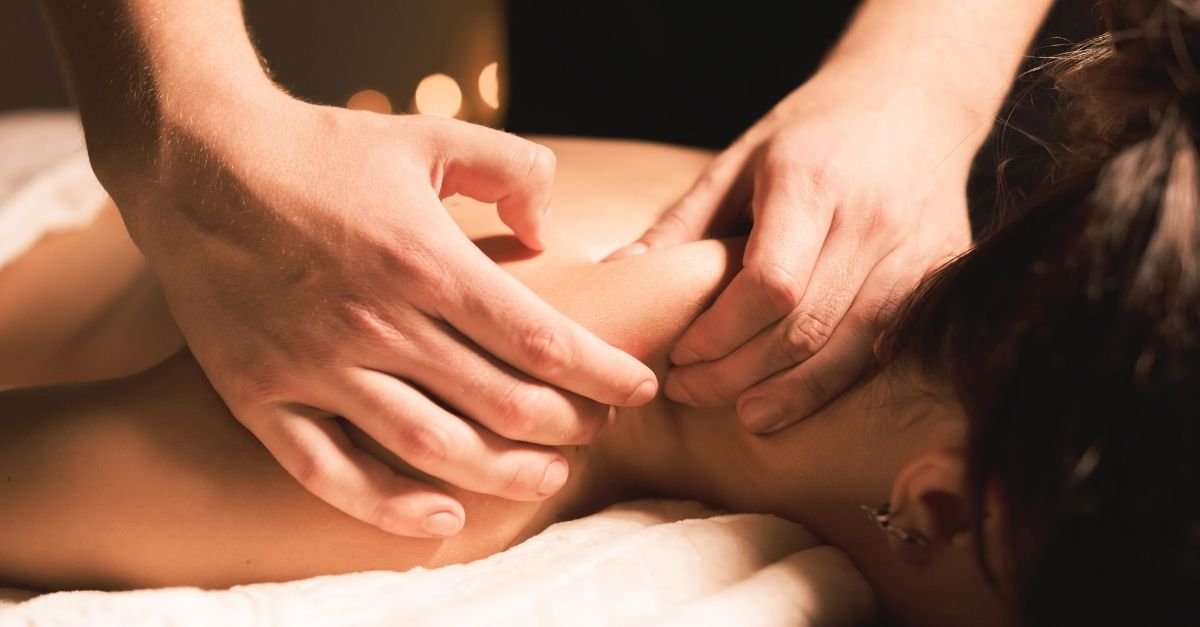When relaxation backfires: why massages can be so painful.
Ever wondered why massages can be so incredibly painful? Massages should be a luxurious and relaxing experience, right? Well it’s not always the case, and a lot of people find them quite excruciating. So why are they so painful? We dive into this question to give you the reason behind the pain and what you can do about it, and for the purpose of this article we focus on contractures and why they make massages so painful.
The reasons why your massages hurt
When it comes to experiencing painful massages, several factors come into play:
Lifestyle factors: Our modern lifestyle can take a toll on our bodies. Excessive stress, long periods of sitting and insufficient physical activity can lead to muscle tension and discomfort. Stress and lack of movement can cause muscles to become tight, making them more sensitive to touch and manipulation during a massage.
Long walks: You would think that long walks would be the healthiest thing you can do, right? Think again. When you go for a long walk or hike, especially if it’s really hilly, you need to stretch afterwards. But you would never think of that. The issue is that prolonged walking without stretching afterwards can cause really tight muscles, especially around the calves and hips.
Contractures: If we do a lot of sports, engage in repetitive motions or have poor posture, we are more prone to getting contractures, which are a more severe form of muscle tightness where muscle fibres remain in a constant state of contraction.
What is a contracture?
A muscle contracture is a state of continuous muscle contraction that doesn't relax even when the muscle is at rest. This can lead to the formation of knots or trigger points within the muscle, which are often painful to touch. These knots can restrict blood flow, cause discomfort, and limit the muscle's range of motion. Which is why when people go for a massage it’s so incredibly painful because these muscles are so tight.
How do contractures form?
Overuse: Repeatedly using a muscle without proper rest and recovery can lead to muscle fibres becoming chronically contracted.
Injury or trauma: Muscle fibres can remain tense as a protective response to an injury, even after the injury has healed.
Dehydration: Inadequate hydration can contribute to muscle cramping and tightness.
Imbalance in muscle use: Certain muscles might become stronger or tighter than their opposing muscles, causing an imbalance that leads to contractures.
Lack of stretching and mobility exercises: Regular stretching and mobility exercises help keep muscles supple and prevent them from becoming excessively tight.
How can you heal a contracture?
Healing a contracture requires a multi-faceted approach that addresses the underlying causes. Here are some tips for you to avoid getting tight muscles and contractures.
Massage therapy: Ok, we know that this article started with massages being painful, however massage therapy really is one of the best ways to heal your tight and sore muscles. Deep tissue and therapeutic massage can hugely help to release your muscles, tensions and contractures. It might be painful in the beginning but eventually as your muscles relax, the pain will go away. And that’s a promise!
Stretching and mobility exercises: Regular stretching helps elongate muscle fibres and prevents them from staying in a contracted state. Methods such as yoga, pilates and gentle stretches can be effective in improving muscle flexibility.
Hydration: Staying adequately hydrated is essential for muscle health. Dehydration can contribute to muscle cramping and tightness. And you don’t want that. So keep drinking your water everyday!
Rest and recovery: Allowing muscles to rest and recover after intense activity is crucial. Overuse can lead to muscle tension and contractures. So make sure you schedule in time to recover between your exercise days.
Posture Correction: Unfortunately we are all sitting for far too long. Digital working might have given us location freedom but it has enslaved us to our desks. Therefore, addressing poor posture through ergonomic adjustments and exercises is crucial to prevent muscle imbalances that lead to contractures.
Working with a therapeutic coach
It’s super important for you to keep your body in optimal shape through movement and sports, but it’s also really important for you to take the time for self-care and to pause. At Kokorology, we offer a whole range of services to support you not only in your fitness and health journey, but also in your healing and self-care journey, which is equally important.
Sabin Lakhani, who is the founder of Kokorology, is a Therapeutic Yoga and Deep Health Coach who can support you in your healing journey if you suffer from muscle pain or contractures. This coupled with massages, will get you in top shape in no time!
Book a 30 minute discovery session with Sabin and unlock the health opportunities available to you: https://calendly.com/sabinl



